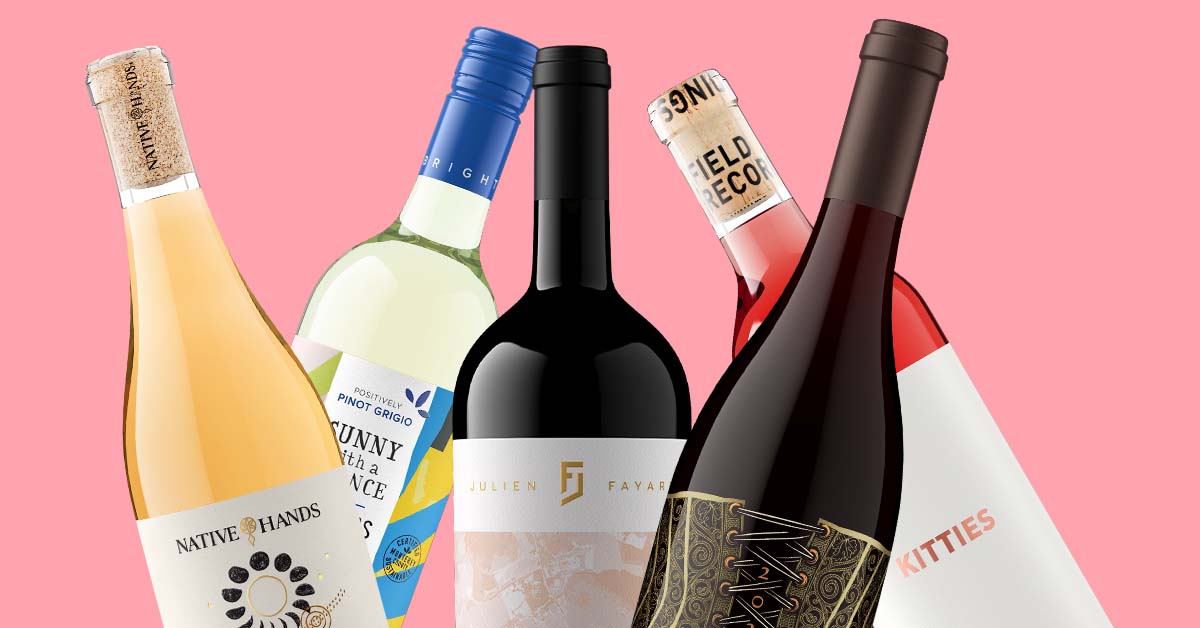
Sustainability is reshaping industries, and the olive oil and wine sectors are no exception. As consumer demand for eco-friendly products grows, brands are rethinking packaging to combine aesthetics with environmental responsibility. The result? Sleek, innovative bottle designs that not only catch the eye but also reduce environmental impact.
For 2025, designers are pushing boundaries, blending modern artistry with sustainable materials and practices. These bottles tell a story of craftsmanship and care, appealing to eco-conscious consumers without compromising on style or functionality. It’s a glimpse into how design and sustainability can work hand in hand to shape the future of packaging.
Innovations in Olive Oil Bottle Pouring Mechanisms
Design advancements in pouring mechanisms improve user experience while aligning with sustainability goals. Drip-free spouts, a notable innovation, prevent spillage by ensuring precise flow control. These spouts minimize waste and maintain cleanliness, adding value to modern olive oil bottles.
Integrated measuring caps allow portion control, appealing to health-conscious consumers. These caps reduce overuse and promote efficiency in daily cooking. Some designs incorporate bioplastics to enhance eco-friendliness.
Reusable pourers emerge as a sustainable trend, replacing single-use fixtures with durable alternatives. These detachable components encourage reusability and simplify recycling of olive oil bottles.
Adjustable flow mechanisms offer tailored dispensing for multiple uses, from light drizzling to bulk pouring. Advanced materials like glass-reinforced polymers enhance durability while reducing resource consumption.
Recycled Glass Leading the Way in Wine Packaging
Recycled glass is shaping the future of sustainable wine packaging. By using up to 80% post-consumer recycled content, manufacturers are reducing energy use and carbon emissions during production. This approach preserves the premium feel of wine bottles while significantly lowering their environmental impact.
Modern wine bottles crafted from recycled glass offer durability and heat resistance comparable to traditional glass. They also support a circular economy by encouraging recyclable designs and less dependence on virgin materials. Lighter bottle options, made from recycled glass, decrease shipping weight and fuel consumption, further promoting eco-conscious practices.
Leading producers are pairing recycled glass with minimalist labeling to enhance recycling compatibility. Techniques like embossing replace adhesive labels, making it easier for bottles to be fully recycled. These innovations align with growing consumer demands for eco-friendly wine packaging and drive sustainable practices across the industry.
Cork vs. Screw Cap: Consumer Preferences and Trends
Cork and screw cap closures reflect shifting consumer preferences in the wine and olive oil bottle markets, particularly as sustainability becomes a driving force. Cork, a renewable resource, appeals to eco-conscious consumers favoring biodegradable and recyclable materials. Its use is prevalent in premium wine bottles, where tradition and perceived quality play significant roles. However, recycled or agglomerated cork options are growing in popularity for their reduced environmental impact.
Screw caps, on the other hand, are favored for their convenience and ability to preserve product freshness. These closures dominate the olive oil bottle segment and are increasingly adopted in wine bottles targeted at casual consumers. Their lightweight design reduces shipping emissions, benefiting eco-conscious brands. Advanced screw cap materials, such as recyclable aluminum, align with sustainability goals while enhancing functionality.
Both closures highlight the balance between practicality and environmental responsibility. Designers and manufacturers in 2025 aim to integrate modern aesthetics with these closure types, ensuring compatibility with sustainable goals and evolving consumer trends.
Laser-Etched Labels for a Premium Bottle Finish
Laser-etched labels offer a sophisticated aesthetic while eliminating the need for traditional adhesive labels that often compromise recyclability. These labels use precision laser technology to engrave directly onto the surface of olive oil bottles or wine bottles, creating a seamless and durable finish. The absence of adhesive materials simplifies the recycling process and enhances the sustainability profile of the packaging.
Designers incorporate intricate patterns, branding elements, and product details on etched surfaces, ensuring clarity and premium appeal. This method minimizes material waste by reducing the need for paper, ink, and glue, aligning with eco-conscious practices. It’s particularly favored for high-end wine bottles and artisanal olive oil bottles, where elegance and environmental responsibility intersect.
Laser etching also supports customization, appealing to brands that want unique designs for limited-edition releases or personalized packaging. The permanence of engraved details ensures longevity, retaining the refined branding even after prolonged use or repurposing.
Lightweight Glass Innovations in the Wine Industry
Lightweight glass designs are transforming wine bottles, reducing environmental impact while maintaining functional integrity and aesthetics. By using smaller quantities of raw materials, lightweight glass decreases energy consumption during production and shipping. Wine bottles made with this technology can weigh up to 20-30% less than traditional bottles, significantly cutting transportation fuel usage and associated carbon emissions.
Advanced manufacturing processes ensure that these lighter bottles retain strength, durability, and heat resistance. Some designs incorporate recycled glass, further enhancing sustainability and supporting circular economy models. The combination of lightweight glass and recycled content also appeals to eco-conscious consumers seeking modern, responsible packaging solutions.
Leading wineries are pairing lightweight glass with minimalist aesthetics, such as clean lines and embossing, to emphasize sustainability while preserving brand identity. These designs align with the growing demand for innovative wine bottles that merge environmental responsibility and premium brand appeal in the 2025 marketplace.
Eco-Friendly Shipping Boxes for Glass Bottles
Eco-friendly shipping boxes reduce packaging waste and improve the sustainability of transporting olive oil bottles and wine bottles. These boxes use biodegradable or recyclable materials such as corrugated cardboard and molded pulp, minimizing environmental impact while securely protecting glass bottles during transit.
Lightweight designs lower overall shipping weight, decreasing fuel consumption and carbon emissions. Manufacturers offer modular inserts made from recycled paperboard or plant-based fibers, ensuring a secure fit for various bottle shapes. Boxes with water-resistant coatings derived from natural waxes or bio-based polymers provide added durability without compromising recyclability.
Brands integrate minimalist printing techniques, like soy-based inks, to enhance sustainability while maintaining visual appeal. QR codes replace traditional printed designs, linking consumers to digital resources such as product Website or sustainability initiatives. This approach reduces ink and paper usage while promoting eco-conscious engagement.
Reusable shipping solutions add functionality, with collapsible designs enabling repeated use in supply chains or direct-to-consumer models. By combining durability, aesthetics, and eco-conscious materials, shipping boxes align with the modern emphasis on sustainable packaging for glass bottles.
Functional Packaging for Extended Shelf Life
Innovative bottle designs for olive oil and wine in 2025 integrate cutting-edge packaging solutions to extend product freshness. Advanced materials like ultraviolet (UV) protective glass reduce light exposure, which prevents oxidation and preserves flavor. Darker glass hues, such as amber or green, contribute to maintaining quality by minimizing UV penetration, especially crucial for olive oil bottles.
Sophisticated sealing mechanisms ensure airtight closures, safeguarding against oxygen ingress. Vacuum-sealed caps or nitrogen-flushing technologies are increasingly used to maintain wine’s integrity during storage. For olive oil bottles, tamper-evident caps combined with drip-free spouts enhance functionality while maintaining product stability.
Modern packaging solutions incorporate protective coatings that resist scratches and smudges while maintaining a premium aesthetic. Coatings using bio-based substrates reduce chemical impact and align with sustainability goals. Dual-purpose designs, such as integrated pourers in Olive Oil Bottles / Wine Bottles, enhance practicality and support eco-friendly practices.
For extended shelf life, brands focus on sustainable innovations allowing materials to remain durable while reducing environmental impact. Wine bottles utilize recyclable glass compositions, ensuring both longevity and eco-conscious appeal. Leading-edge olive oil bottles adopt refillable designs, encouraging repeated use and decreasing resource consumption.
Designing Refillable Bottles for Repeat Usage
Sustainability and innovation are transforming the olive oil and wine packaging industries, setting a new standard for 2025. By prioritizing refillable designs and eco-friendly materials, brands are fostering a culture of reuse and reducing environmental impact. Modern packaging seamlessly blends functionality, aesthetics, and environmental responsibility, appealing to both eco-conscious consumers and premium markets.
As designers continue to push boundaries, the integration of advanced features and sustainable practices ensures these industries remain at the forefront of packaging innovation. The future of olive oil and wine bottles is not just about preserving quality but also about protecting the planet.






